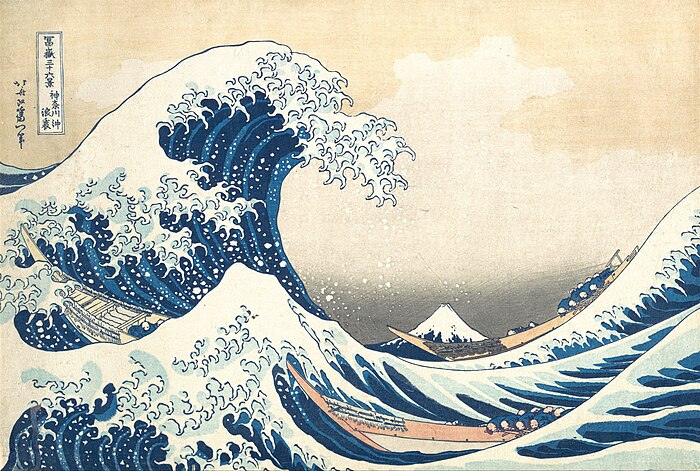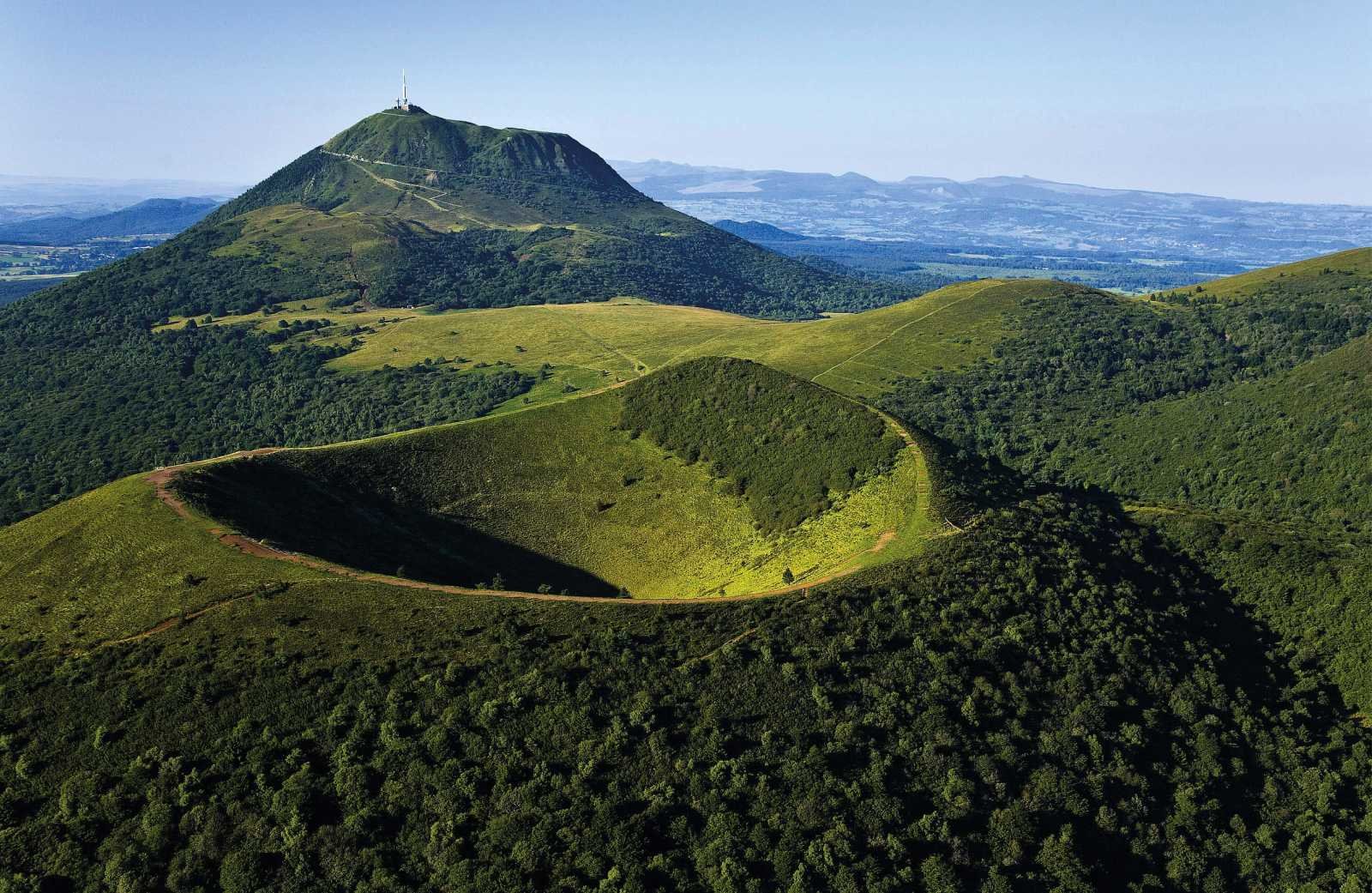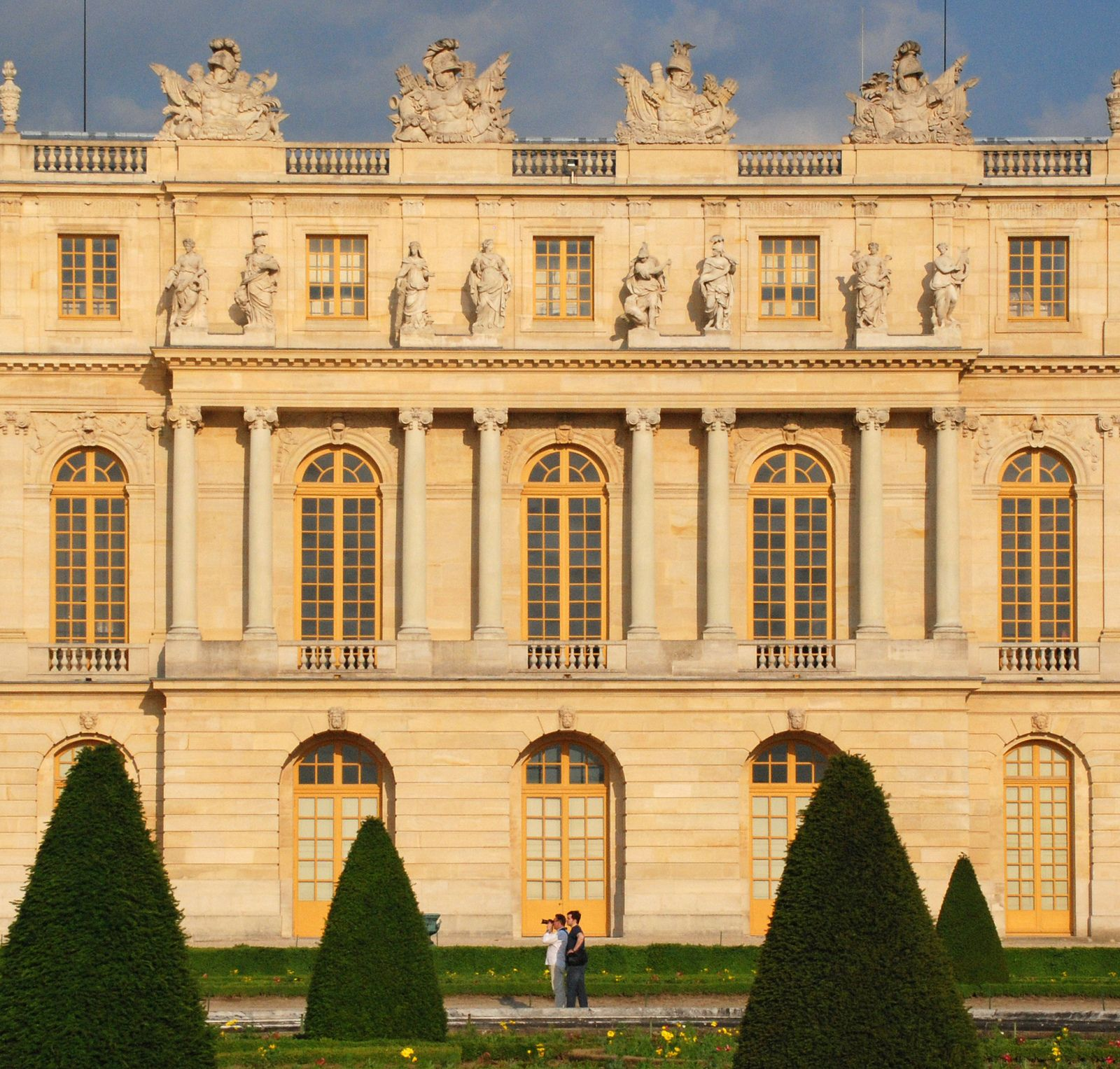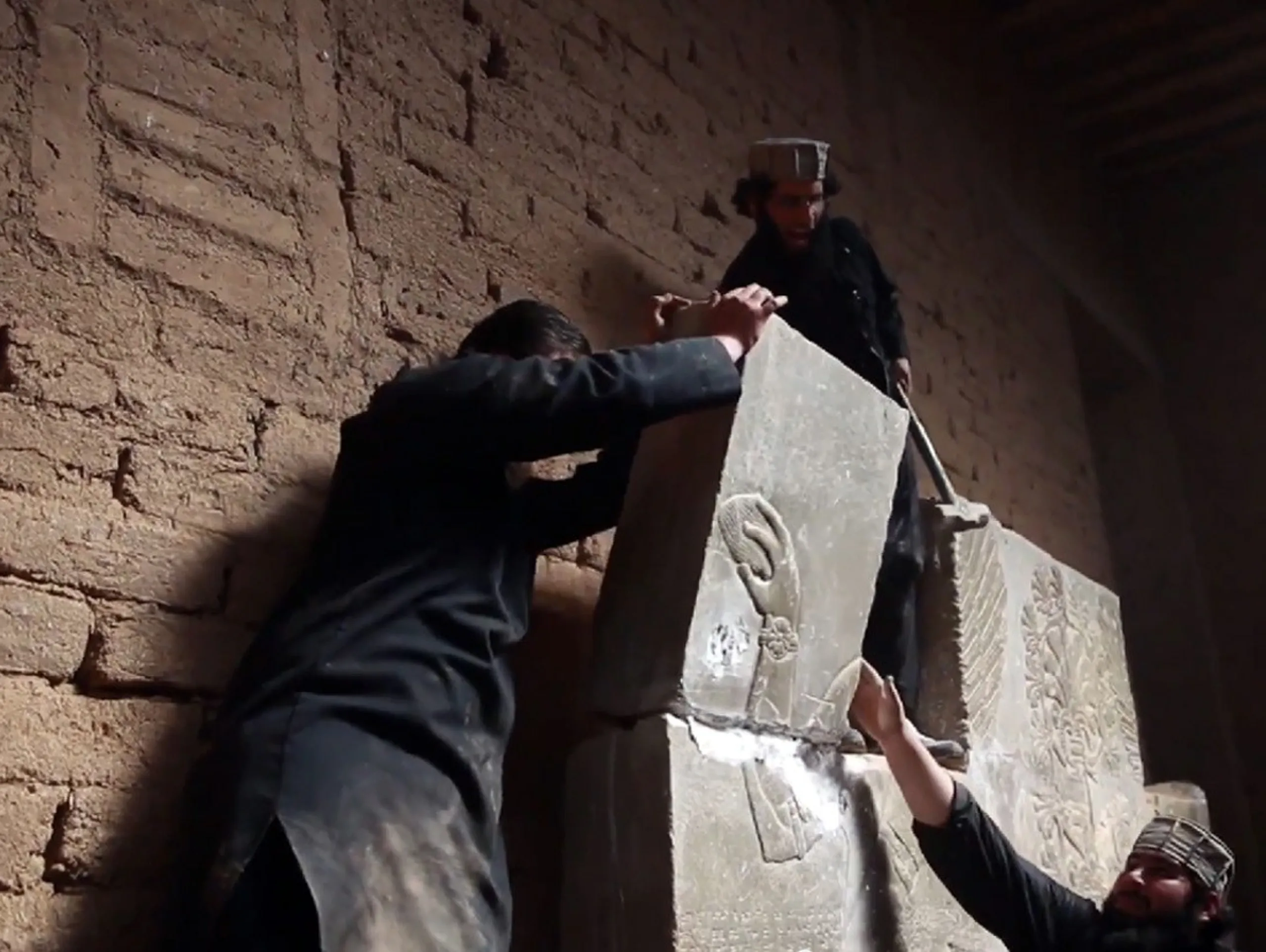It’s not just land, land is intimately related to culture. Also millions moving to a neighbor country will generally create a political and humanitarian crisis, it’s not a magical solution with no negative consequences.
Could you expand more on your definition of culture? To me, culture relating to land has no inherent value (assuming you mean shrines, temples, etc) without those that recognize their value. For example, a culturally important place of worship has little to no value if most of the people who value it died trying to defend it.
One of the foundation of culture is transforming the land, starting from agriculture. The way the natural land was shaped by the people living on is a first marker of culture. Then comes the art and the buildings, in Europe we have a very dense network of historical remains spanning thousands of years, from cave paintings to modern art museums.
If you have ever seen with your own eyes or touched with your own hands a famous remain of your place, you know the emotion is not quite the same as seeing it on the internet. It creates a feeling of belonging to a line of people who have created things bigger than them, and you reach a better understanding of how everything that allows your life today was progressively developed. It makes you want to protect this inheritance for others to access the same knowledge and emotions, and it may motivate you to produce something that could reach a similar value.
Land inspire artists and creators in general. The most evident example is how Mount Fuji inspired the creation of an insane quantity of art in Japan, such as the Thirty-six Views of Mount Fuji by Hokusai. The famous Great Wave off Kanagawa from this series, which is actually about the Mount Fuji, had a massive impact on the world culture.
The end of 19th century classical guitar piece Recuerdos de la Alhambra written by Spanish composer Francisco Tárrega is an interesting example. It was inspired by the Alhambra palace in Spain, which was built during the 13th century by the Emirates who conquered Spain during the previous centuries. Nonetheless, it became part of the Spanish culture and inspired new art pieces. https://www.youtube.com/watch?v=fwjX-m4LkYk
To get back to the mountains, but with a historical scientific experiment this time (science is part of culture). Blaise Pascal did a historical experiment in 1648 at the Puy-de-Dôme (volcanic mountain in the middle of France) in order to test the “weight of air” that later led to the understanding of atmospheric pressure (immortalized by the Pascal unit of measurement). This would not have been possible in Holland (because it’s flat). https://backreaction.blogspot.com/2007/11/blaise-pascal-florin-p-and-puy-de-d.html
There are countless examples of how ancient Greece and Rome inspired arts and architecture at different centuries: 16th century St. Peter’s basilica, 17th century Versailles palace or Neoclassicism art in the 18th and 19th centuries.
There are many other examples about rivers, lakes, seas, cities etc…
That is to say, the land and how it is transformed and built are major sources of culture. If you take the same people but magically modify their history, so they lived on a different land, you will have a different culture. Probably not worse nor better, but different, because the land inspires the culture.
If your people are not living on its history soaked land anymore, you lose those major culture nutriments. I’m not saying people cannot carry part of their culture with them, nor that culture cannot reinvent itself and be inspired by different origins, but you have more chances to dilute or lose culturally important works of the past if they are not set in stone. Stones that you can access.
Apologies for the delayed response, I appreciate the effort you put into your reply and I felt that I could not fully parse it and form a proper response in my ill state a couple of days ago.
I understand what you’re saying! I do recognize that culture can be very important to a lot of people and that it can give them a sense of belonging, strengthen their bonds with their community, and give them a day-to-day purpose to do what they do. I strongly believe that if people choose to do so, they have the right to fight and die to protect their culture and that there’s nothing wrong with that. The issue I raise is with drafts specifically because they compel people to fight and die for a cause they may not believe in. A draft is essentially a sacrifice of unwilling innocent people in order to protect a culture, and I don’t think that such a large-scale sacrifice can be justified to protect something that is NOT human life.
The location of culture is not explicitly stated in Maslow’s hierarchy of needs. I believe that aspects of it would be spread out across the hierarchy, but are at most at the level of (and are only part of) “belonging and love.” This is because as you have stated, culture can be important for giving people a sense of belonging and makes them feel like they’re part of something bigger than themselves. If you are forced to fight and die a brutal death, you are losing your safety and physiological needs in order to protect others’ belonging and love, and to me, that is unfair and wrong. This isn’t necessarily always the case - extremes like sacrificing one person to save a nation do seem right to me - but the immense scale of suffering and death of unwilling and innocent people wrought by a draft is unjustifiable for what it protects.
Even though culture as you describe it is clearly valuable, it is something that can only be experienced through the lens of people and therefore only has as much value as the people who experience it. By supporting a draft, you’re essentially making the moral judgement call that it is okay to force numerous people to die brutal and bloody deaths so that others can enrich their lives through a strong and protected culture. The cost in human lives, violations of their rights, and infliction of suffering is simply too great.
This comment was specifically about why land is essential to culture.
About drafting, In other comments, I explained how I think that you have the responsibility to defend the culture that raised you. It’s like paying taxes in a social-democracy, you may have become self-sufficient and don’t need the social system anymore, but you have the moral responsibility to contribute back (at least through taxes), so the next underprivileged group can benefit from what allowed you to reach this point: public education, medicine, culture, research, other public infrastructure and services, etc.
So defending your people/culture/land is an extension of this thought.
Of course, I wish people would enlist out of free will, but not everyone has high moral standards (imperfect education perhaps), so you need constrains, that’s also why laws and enforcement are needed.
To be honest, I had a pacifist period where I would have preferred to run away from any military conflict. But now, I think we can’t deal in absolute, we have to work with compromises, in this case, supporting the lesser evil that will reduce the amount of deaths and destruction. I think getting drafted people killed to stop Putin’s imperialism is a lesser evil than letting it destroy a democracy and its culture. I believe he will not stop until he has done the same to all the ex-USSR countries, and that stopping him in Ukraine should reduce the amount of destruction.
The big differences between taxes and the draft are:
You usually still live even if you get taxed.
Taxes are a cost of participating in society. If you want to stop paying them, you can using money entirely and go live on a boat or something. It’s not super viable, but taxes aren’t technically mandatory.
Getting drafted is more akin to slavery than taxes. It also threatens your well-being in a way that taxes do not.
It’s not just land, land is intimately related to culture. Also millions moving to a neighbor country will generally create a political and humanitarian crisis, it’s not a magical solution with no negative consequences.
Could you expand more on your definition of culture? To me, culture relating to land has no inherent value (assuming you mean shrines, temples, etc) without those that recognize their value. For example, a culturally important place of worship has little to no value if most of the people who value it died trying to defend it.
There are no perfect solutions, of course.
One of the foundation of culture is transforming the land, starting from agriculture. The way the natural land was shaped by the people living on is a first marker of culture. Then comes the art and the buildings, in Europe we have a very dense network of historical remains spanning thousands of years, from cave paintings to modern art museums. If you have ever seen with your own eyes or touched with your own hands a famous remain of your place, you know the emotion is not quite the same as seeing it on the internet. It creates a feeling of belonging to a line of people who have created things bigger than them, and you reach a better understanding of how everything that allows your life today was progressively developed. It makes you want to protect this inheritance for others to access the same knowledge and emotions, and it may motivate you to produce something that could reach a similar value.
Land inspire artists and creators in general. The most evident example is how Mount Fuji inspired the creation of an insane quantity of art in Japan, such as the Thirty-six Views of Mount Fuji by Hokusai. The famous Great Wave off Kanagawa from this series, which is actually about the Mount Fuji, had a massive impact on the world culture.

Similarly, post-impressionist painter Paul Cézanne painted multiple views of mount Sainte-Victoire https://drawpaintacademy.com/mont-sainte-victoire/

The end of 19th century classical guitar piece Recuerdos de la Alhambra written by Spanish composer Francisco Tárrega is an interesting example. It was inspired by the Alhambra palace in Spain, which was built during the 13th century by the Emirates who conquered Spain during the previous centuries. Nonetheless, it became part of the Spanish culture and inspired new art pieces.
https://www.youtube.com/watch?v=fwjX-m4LkYk
To get back to the mountains, but with a historical scientific experiment this time (science is part of culture). Blaise Pascal did a historical experiment in 1648 at the Puy-de-Dôme (volcanic mountain in the middle of France) in order to test the “weight of air” that later led to the understanding of atmospheric pressure (immortalized by the Pascal unit of measurement). This would not have been possible in Holland (because it’s flat). https://backreaction.blogspot.com/2007/11/blaise-pascal-florin-p-and-puy-de-d.html

There are countless examples of how ancient Greece and Rome inspired arts and architecture at different centuries: 16th century St. Peter’s basilica, 17th century Versailles palace or Neoclassicism art in the 18th and 19th centuries.

There are many other examples about rivers, lakes, seas, cities etc…
That is to say, the land and how it is transformed and built are major sources of culture. If you take the same people but magically modify their history, so they lived on a different land, you will have a different culture. Probably not worse nor better, but different, because the land inspires the culture.
If your people are not living on its history soaked land anymore, you lose those major culture nutriments. I’m not saying people cannot carry part of their culture with them, nor that culture cannot reinvent itself and be inspired by different origins, but you have more chances to dilute or lose culturally important works of the past if they are not set in stone. Stones that you can access.
It may even get physically destroyed and erased, like what ISIL terrorists did of the ancient temples in Iraq and Syria. To be fair, it also happens from “democratic” movements, such as how the French Revolution destroyed many pieces of arts because it represented the Nobility and the Church. https://www.nytimes.com/1977/05/04/archives/notre-dame-statuary-lost-in-1793-unearthed-in-paris.html

https://eu.usatoday.com/story/news/world/2015/04/12/video-islamic-state-nimrud/25667399/
Given that Putin negates Ukrainian’s history and culture as a justification to invade it, we can expect that he would continue on his pathway of destruction to erase any reminder of it.
https://theconversation.com/we-should-all-be-concerned-that-putin-is-trying-to-destroy-ukrainian-culture-179351
So that’s a couple of elements that came to my mind about why defending your land is important for your culture.
Here is an alternative Piped link(s): https://piped.video/watch?v=fwjX-m4LkYk
Piped is a privacy-respecting open-source alternative frontend to YouTube.
I’m open-source, check me out at GitHub.
Apologies for the delayed response, I appreciate the effort you put into your reply and I felt that I could not fully parse it and form a proper response in my ill state a couple of days ago.
I understand what you’re saying! I do recognize that culture can be very important to a lot of people and that it can give them a sense of belonging, strengthen their bonds with their community, and give them a day-to-day purpose to do what they do. I strongly believe that if people choose to do so, they have the right to fight and die to protect their culture and that there’s nothing wrong with that. The issue I raise is with drafts specifically because they compel people to fight and die for a cause they may not believe in. A draft is essentially a sacrifice of unwilling innocent people in order to protect a culture, and I don’t think that such a large-scale sacrifice can be justified to protect something that is NOT human life.
The location of culture is not explicitly stated in Maslow’s hierarchy of needs. I believe that aspects of it would be spread out across the hierarchy, but are at most at the level of (and are only part of) “belonging and love.” This is because as you have stated, culture can be important for giving people a sense of belonging and makes them feel like they’re part of something bigger than themselves. If you are forced to fight and die a brutal death, you are losing your safety and physiological needs in order to protect others’ belonging and love, and to me, that is unfair and wrong. This isn’t necessarily always the case - extremes like sacrificing one person to save a nation do seem right to me - but the immense scale of suffering and death of unwilling and innocent people wrought by a draft is unjustifiable for what it protects.
Even though culture as you describe it is clearly valuable, it is something that can only be experienced through the lens of people and therefore only has as much value as the people who experience it. By supporting a draft, you’re essentially making the moral judgement call that it is okay to force numerous people to die brutal and bloody deaths so that others can enrich their lives through a strong and protected culture. The cost in human lives, violations of their rights, and infliction of suffering is simply too great.
This comment was specifically about why land is essential to culture.
About drafting, In other comments, I explained how I think that you have the responsibility to defend the culture that raised you. It’s like paying taxes in a social-democracy, you may have become self-sufficient and don’t need the social system anymore, but you have the moral responsibility to contribute back (at least through taxes), so the next underprivileged group can benefit from what allowed you to reach this point: public education, medicine, culture, research, other public infrastructure and services, etc.
So defending your people/culture/land is an extension of this thought.
Of course, I wish people would enlist out of free will, but not everyone has high moral standards (imperfect education perhaps), so you need constrains, that’s also why laws and enforcement are needed.
To be honest, I had a pacifist period where I would have preferred to run away from any military conflict. But now, I think we can’t deal in absolute, we have to work with compromises, in this case, supporting the lesser evil that will reduce the amount of deaths and destruction. I think getting drafted people killed to stop Putin’s imperialism is a lesser evil than letting it destroy a democracy and its culture. I believe he will not stop until he has done the same to all the ex-USSR countries, and that stopping him in Ukraine should reduce the amount of destruction.
The big differences between taxes and the draft are:
You usually still live even if you get taxed.
Taxes are a cost of participating in society. If you want to stop paying them, you can using money entirely and go live on a boat or something. It’s not super viable, but taxes aren’t technically mandatory.
Getting drafted is more akin to slavery than taxes. It also threatens your well-being in a way that taxes do not.